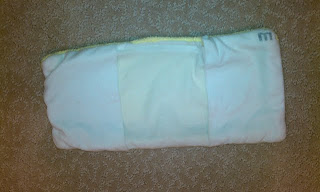If you are interested in programming hardware check out Arduino
The entire idea behind this project was to have my garage door open wirelessly. So I have a transmitter and a reciever, and when the receiver gets a signal it simulates someone pushing the button by closing a relay, shorting the two wires to operate the garage door. (this garage door is OLD, I am talking REALLLY OLD!!!)
Parts:
$25 - Nordic FOB http://www.sparkfun.com/products/8602
$20 - Nordic nRF24L01 http://www.sparkfun.com/products/705
$15 - RBBB (Ardunio Clone) http://shop.moderndevice.com/products/rbbb-kit
$4 - Sharp S101S02 Solid State Relay http://www.jameco.com/webapp/wcs/stores/servlet/ProductDisplay?langId=-1&productId=164988
$.50 - Misc. Transistor that came with Ardunio kit I bought.
$.20 - Misc. Resistor that came with Ardunio kit I bought.
Random antennae that i had....
----
$65 - Just to prove that I could. Of course the Ardunio is capable of much more then I am using it for so I plan to expand it in the future, temperature, barometric pressure, and more reads... just haven't gotten to it yet.
And now the code:
#include
#include
#include
/* Pins:
* Hardware SPI:
* MISO -> 12
* MOSI -> 11
* SCK -> 13
*
* Configurable:
* CE -> 9
* CSN -> 10
*/
byte data[4]; //set the data to be retreived from wireless module
byte lastdata; // compare new data to last data
//I am having a problem where the reciever keeps on reading "new" data in the form of a 'right' button press. but it is not new data, it is simply reading old
// data over and over again... as evidence by the data[2] bit not changing... this data bit from the FOB is the number of button pushes since battery replacement
// or at least it changes every button push, but does not change when faulty data is being read. So I store the last bit 2 and compare it to the new one, if
// there is no change, toss the data out it is garbage.
int timer = 0; // set the timer to prevent repeat button presses (bounce)
int subtimer =0; // ser the subtimer to trigger the real timer (allows for reading of the buffer faster but only responding every so often to the fob presses)
void setup() {
pinMode(4, OUTPUT); // This is the output connected to a transistor, connected to a solid state relay.
pinMode(2, OUTPUT);
Mirf.csnPin = 10; //set the nordic CSN pin to 10
Mirf.cePin = 9; //ser the nordic CE pin to 9
Mirf.init(); //initialize the nordic
byte rx_addr[5] = {0xE7, 0xE7, 0xE7, 0xE7, 0xE7};
Mirf.setRADDR(rx_addr);
Mirf.configRegister(RF_SETUP, 0x07); //Data rate 1Mbit / 0dBm
Mirf.configRegister(EN_AA, 0x00); //Disable auto acknowledge
Mirf.payload = 4; //bytes to be read
Mirf.channel = 2; // channel used
Mirf.config();
// Serial.begin(9600); //used while developing
// Serial.println("start"); //used while developing
Mirf.flushRx(); // start with a clean buffer, I had issues without this occassionally.
}
void loop() {
Mirf.getData(data); // get data from the buffer
// Serial.print(data[0]); //used while developing
// Serial.println(" ");
if (data[2] != lastdata){ // check if the data[2] is the same as last time, if it is do nothing.... bad data
lastdata = data[2];
switch (data[0]) {
case 0x00:
break;
case 0x1D:
// Serial.println(timer); //used while developing up button
OpenDoor();
break;
case 0x1E:
// Serial.println("DOWN"); //used while developing
OpenDoor();
break;
case 0x17:
// Serial.println("LEFT"); //used while developing
OpenDoor();
break;
case 0x1B:
// Serial.println("RIGHT"); //used while developing
OpenDoor();
break;
case 0x0F:
OpenDoor();
// Serial.println("CENTER"); //used while developing
break;
default:
break;
}
}
delay(5);
// for ever 40 subtimer clicks, click one timer click
// yes is is crude, yes it is wierd, yes I could have multiplied it out an done it with on timer
// but you get a little crazy writing code some times....
if (subtimer >=40) {
timer = timer + 1;
subtimer = 0;
}
if (timer >= 100){ //don't allow timer to get greater then 100... if it gets too high will turn massivly negative
timer =100;
}
subtimer = subtimer + 1;
// End of LOOP
}
void OpenDoor() {
if (timer <= 34) { //If timer isn't ready yet, short pulse the LED, to at least let you know signal was recieved
digitalWrite(2, HIGH); // This is used to light an LED on pin2 to make sure board is working
delay(100);
timer = timer + 1;
digitalWrite(2, LOW); // This is used to light an LED on pin2 to make sure board is working
}
if (timer >= 35) { //time is ready and this will allow the garage door to operate
timer = 0; //reset timers to allow for delay before next operation
// THIS IS A MUST BECAUSE THE NORDIC FOB HAS KEY BOUNCE!!!
// it will send multiple key presses for one physical press
subtimer = 0;
// Serial.println("start door");//used while developing
digitalWrite(2, HIGH); //trigger LED on for long pulse to let you know signal recieved, door should be operating
digitalWrite(4, HIGH); //trigger the transitor -> the solid state relay to closed (this simulates a button push of the garage door)
delay(2000);
digitalWrite(4, LOW); //turn off transistor after 2 second delay.
digitalWrite(2, LOW); //turn off OPTIONAL LED for evauliting if board is working...
// Serial.println("stop door");//used while developing
}
}
#include
#include
/* Pins:
* Hardware SPI:
* MISO -> 12
* MOSI -> 11
* SCK -> 13
*
* Configurable:
* CE -> 9
* CSN -> 10
*/
byte data[4]; //set the data to be retreived from wireless module
byte lastdata; // compare new data to last data
//I am having a problem where the reciever keeps on reading "new" data in the form of a 'right' button press. but it is not new data, it is simply reading old
// data over and over again... as evidence by the data[2] bit not changing... this data bit from the FOB is the number of button pushes since battery replacement
// or at least it changes every button push, but does not change when faulty data is being read. So I store the last bit 2 and compare it to the new one, if
// there is no change, toss the data out it is garbage.
int timer = 0; // set the timer to prevent repeat button presses (bounce)
int subtimer =0; // ser the subtimer to trigger the real timer (allows for reading of the buffer faster but only responding every so often to the fob presses)
void setup() {
pinMode(4, OUTPUT); // This is the output connected to a transistor, connected to a solid state relay.
pinMode(2, OUTPUT);
Mirf.csnPin = 10; //set the nordic CSN pin to 10
Mirf.cePin = 9; //ser the nordic CE pin to 9
Mirf.init(); //initialize the nordic
byte rx_addr[5] = {0xE7, 0xE7, 0xE7, 0xE7, 0xE7};
Mirf.setRADDR(rx_addr);
Mirf.configRegister(RF_SETUP, 0x07); //Data rate 1Mbit / 0dBm
Mirf.configRegister(EN_AA, 0x00); //Disable auto acknowledge
Mirf.payload = 4; //bytes to be read
Mirf.channel = 2; // channel used
Mirf.config();
// Serial.begin(9600); //used while developing
// Serial.println("start"); //used while developing
Mirf.flushRx(); // start with a clean buffer, I had issues without this occassionally.
}
void loop() {
Mirf.getData(data); // get data from the buffer
// Serial.print(data[0]); //used while developing
// Serial.println(" ");
if (data[2] != lastdata){ // check if the data[2] is the same as last time, if it is do nothing.... bad data
lastdata = data[2];
switch (data[0]) {
case 0x00:
break;
case 0x1D:
// Serial.println(timer); //used while developing up button
OpenDoor();
break;
case 0x1E:
// Serial.println("DOWN"); //used while developing
OpenDoor();
break;
case 0x17:
// Serial.println("LEFT"); //used while developing
OpenDoor();
break;
case 0x1B:
// Serial.println("RIGHT"); //used while developing
OpenDoor();
break;
case 0x0F:
OpenDoor();
// Serial.println("CENTER"); //used while developing
break;
default:
break;
}
}
delay(5);
// for ever 40 subtimer clicks, click one timer click
// yes is is crude, yes it is wierd, yes I could have multiplied it out an done it with on timer
// but you get a little crazy writing code some times....
if (subtimer >=40) {
timer = timer + 1;
subtimer = 0;
}
if (timer >= 100){ //don't allow timer to get greater then 100... if it gets too high will turn massivly negative
timer =100;
}
subtimer = subtimer + 1;
// End of LOOP
}
void OpenDoor() {
if (timer <= 34) { //If timer isn't ready yet, short pulse the LED, to at least let you know signal was recieved
digitalWrite(2, HIGH); // This is used to light an LED on pin2 to make sure board is working
delay(100);
timer = timer + 1;
digitalWrite(2, LOW); // This is used to light an LED on pin2 to make sure board is working
}
if (timer >= 35) { //time is ready and this will allow the garage door to operate
timer = 0; //reset timers to allow for delay before next operation
// THIS IS A MUST BECAUSE THE NORDIC FOB HAS KEY BOUNCE!!!
// it will send multiple key presses for one physical press
subtimer = 0;
// Serial.println("start door");//used while developing
digitalWrite(2, HIGH); //trigger LED on for long pulse to let you know signal recieved, door should be operating
digitalWrite(4, HIGH); //trigger the transitor -> the solid state relay to closed (this simulates a button push of the garage door)
delay(2000);
digitalWrite(4, LOW); //turn off transistor after 2 second delay.
digitalWrite(2, LOW); //turn off OPTIONAL LED for evauliting if board is working...
// Serial.println("stop door");//used while developing
}
}
Please let me know if you see anything horribly wrong with my code or hardware, I am very much in unknown territory here.
-Matt





















































